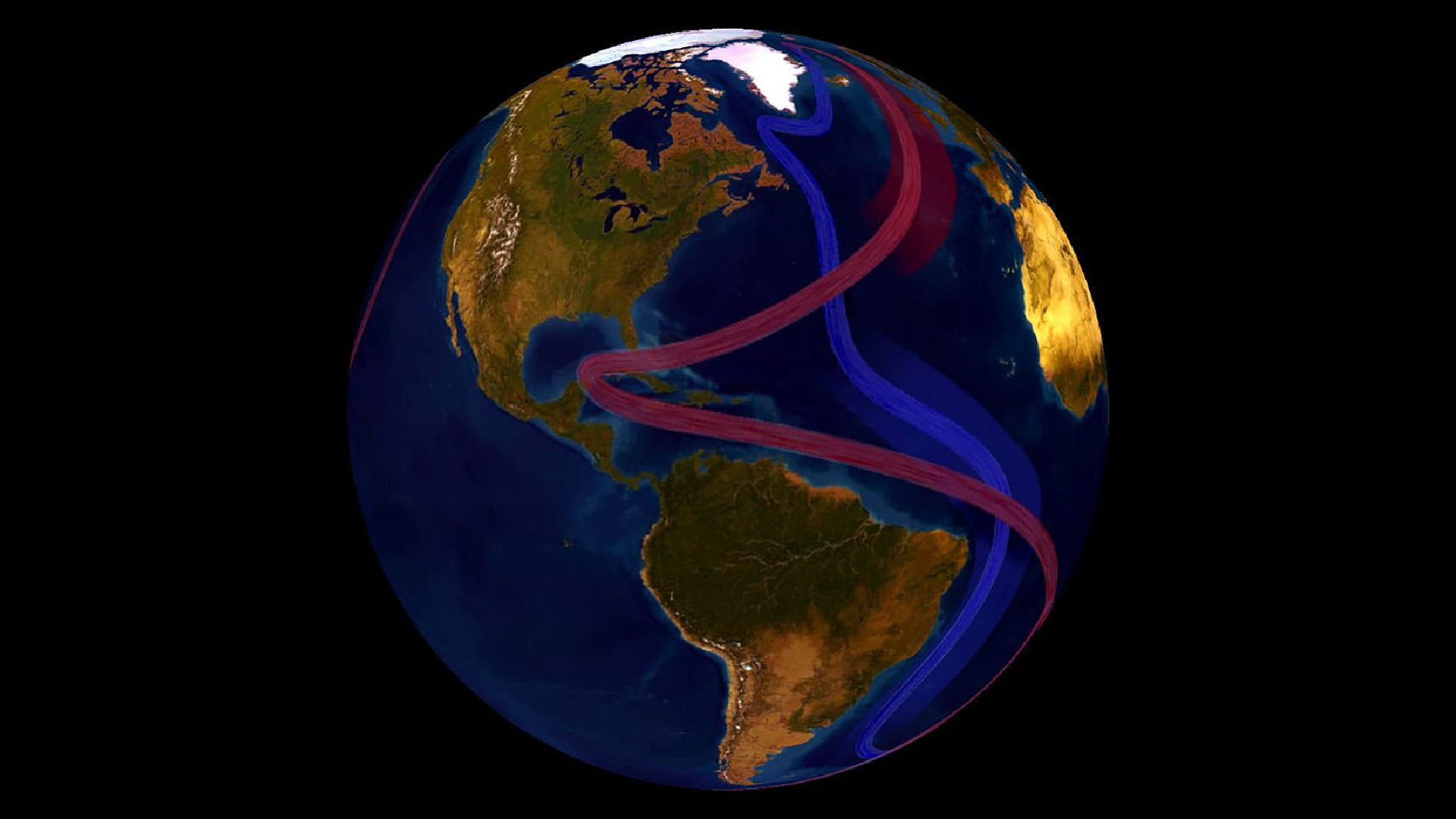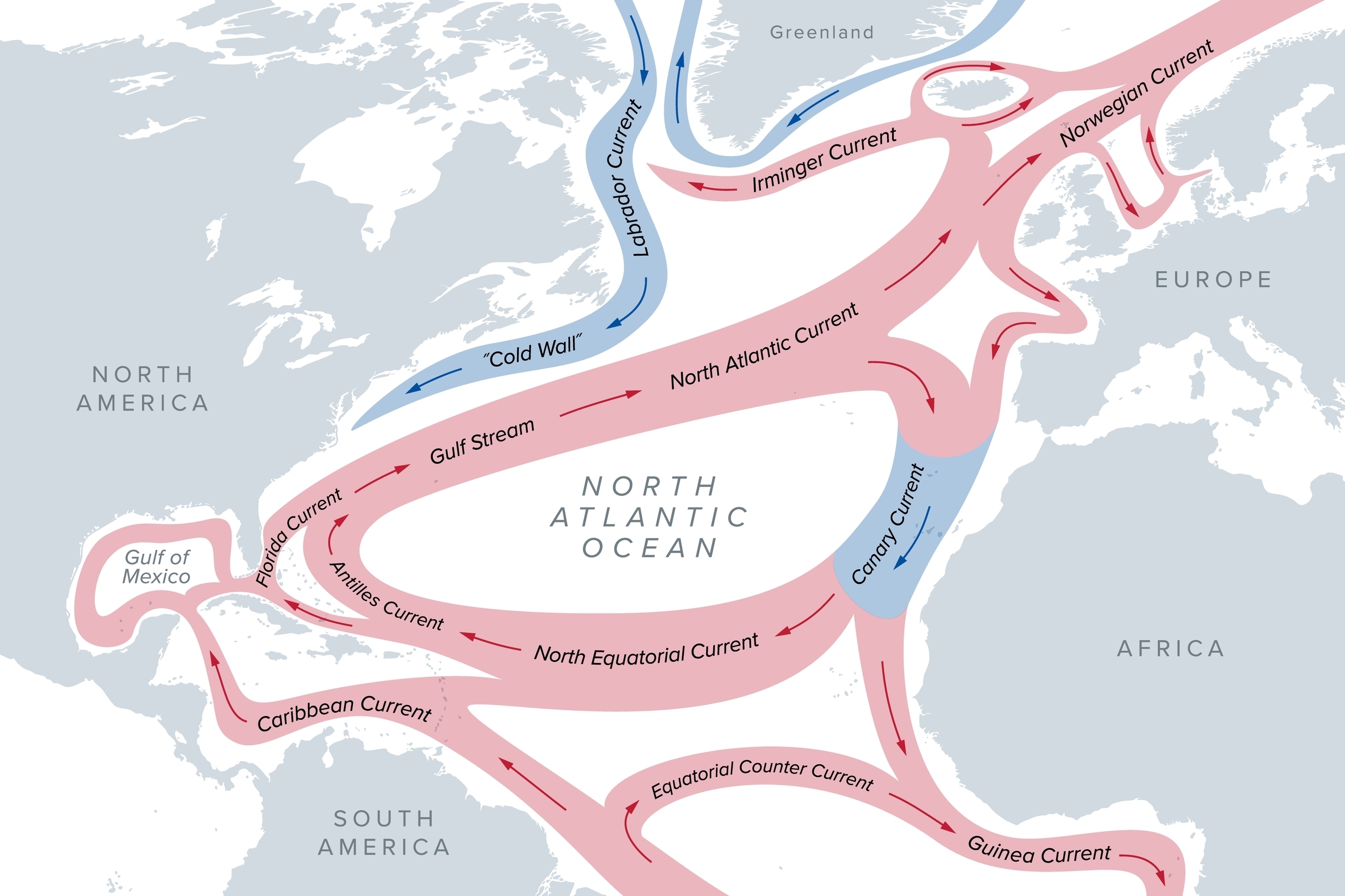Key Atlantic current could collapse soon, 'impacting the entire world for centuries to come,' leading climate scientists warn
Leading climate scientists ring alarm bell on key Atlantic Ocean current collapse in open letter

Forty-four of the world's leading climate scientists have called on Nordic policymakers to address the potentially imminent and "devastating" collapse of key Atlantic Ocean currents.
In an open letter published online Monday (Oct. 21), University of Pennsylvania climatologist Michael Mann and other eminent scientists say the risks of weakening ocean circulation in the Atlantic have been greatly underestimated and warrant urgent action.
The currents in question are those forming the Atlantic Meridional Overturning Circulation (AMOC), a giant ocean conveyor belt that includes the Gulf Stream and transports vital heat to the Northern Hemisphere. Research shows the AMOC is slowing down and could soon reach a tipping point due to global warming, throwing Earth's climate into chaos.
"Such an ocean circulation change would have devastating and irreversible impacts especially for Nordic countries, but also for other parts of the world," the scientists wrote in the letter. The Nordic countries include Denmark, Iceland, Norway, Finland and Sweden.
Related: Michael Mann: Yes, we can still stop the worst effects of climate change. Here's why.
An AMOC collapse would lead to major cooling and extreme weather in Nordic countries, according to the letter. This would enlarge and deepen a strange "cold blob" that has already developed over the eastern North Atlantic due to the slowdown of heat-carrying currents. Collapsing ocean currents are also likely to precipitate climate impacts across the Northern Hemisphere, threatening agriculture in Northwestern Europe, according to the letter.

Other regions would feel the effects, too, the scientists said. Should the AMOC grind to a halt, it would trigger a southward shift in tropical monsoon systems — with catastrophic consequences for agriculture and ecosystems. Halted ocean currents could also further heighten sea levels along the American Atlantic coast and send marine ecosystems and fisheries into a state of "upheaval."
Sign up for the Live Science daily newsletter now
Get the world’s most fascinating discoveries delivered straight to your inbox.
Without urgent climate action, the AMOC could collapse in the next few decades, although there is huge uncertainty in predicting the timescales, according to the letter. The latest report by the Intergovernmental Panel on Climate Change (IPCC) states that "there is medium confidence that the Atlantic Meridional Overturning Circulation will not collapse abruptly before 2100," but the scientists say this is an underestimate.
The IPCC estimate is not only imprecise but also worrisome, according to the letter.
"The purpose of this letter is to draw attention to the fact that only 'medium confidence' in the AMOC not collapsing is not reassuring, and clearly leaves open the possibility of an AMOC collapse during this century," the scientists wrote. "Even with a medium likelihood of occurrence, given that the outcome would be catastrophic and impacting the entire world for centuries to come, we believe more needs to be done to minimize this risk."
The scientists addressed the letter to the Nordic Council of Ministers, an intergovernmental forum tasked with promoting cooperation among the Nordic countries. They urged policymakers to seriously consider the risks posed by an AMOC collapse and to increase pressure on international partners to stay close to the targets of the 2015 Paris Agreement, which aims to keep average global temperature rise to 2.7 degrees Fahrenheit (1.5 degrees Celsius) above preindustrial levels.

Sascha is a U.K.-based staff writer at Live Science. She holds a bachelor’s degree in biology from the University of Southampton in England and a master’s degree in science communication from Imperial College London. Her work has appeared in The Guardian and the health website Zoe. Besides writing, she enjoys playing tennis, bread-making and browsing second-hand shops for hidden gems.









